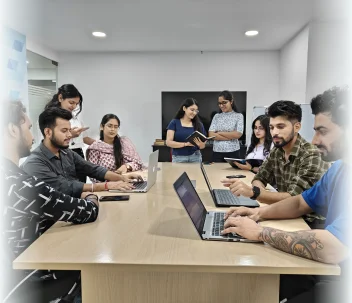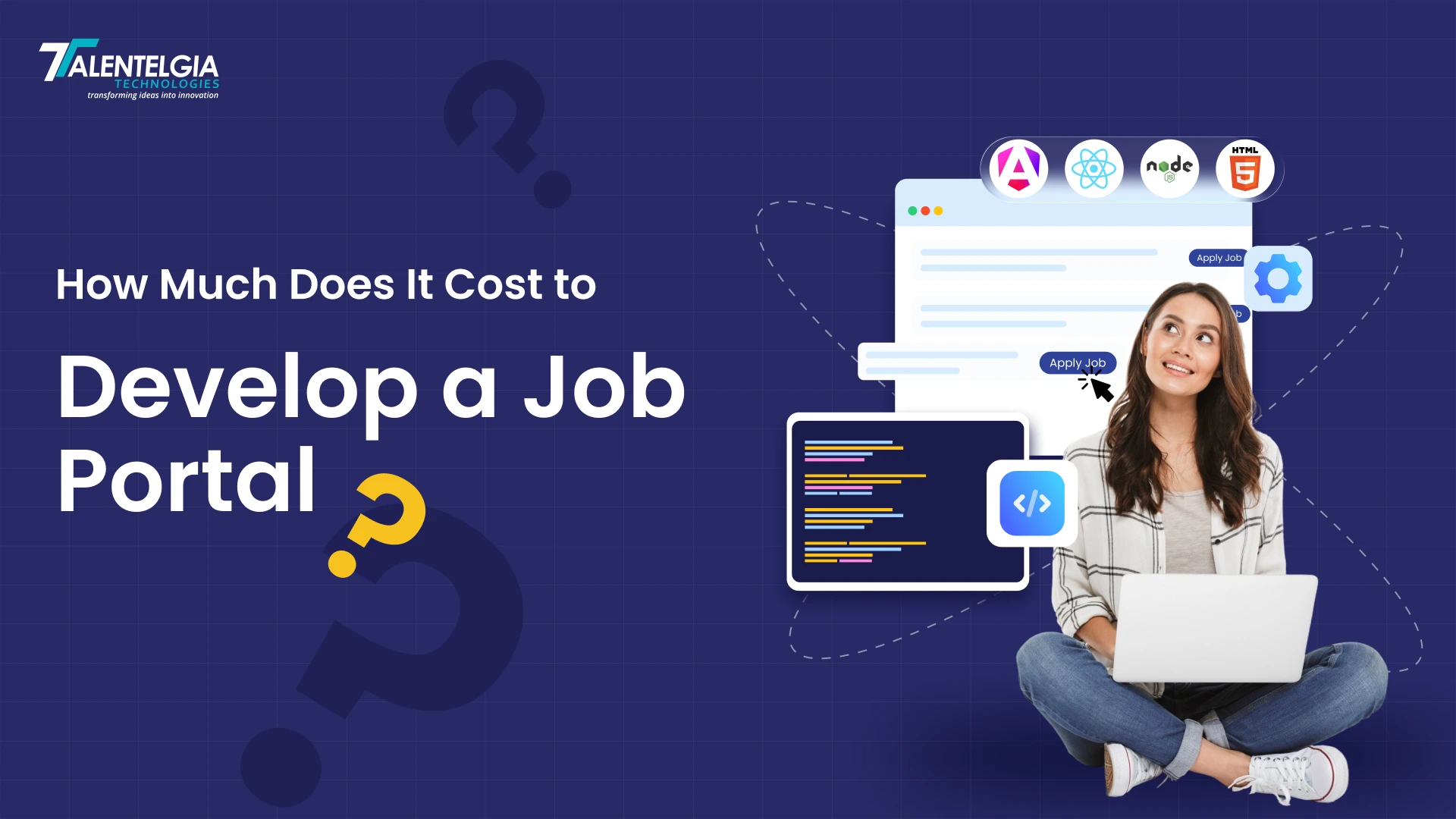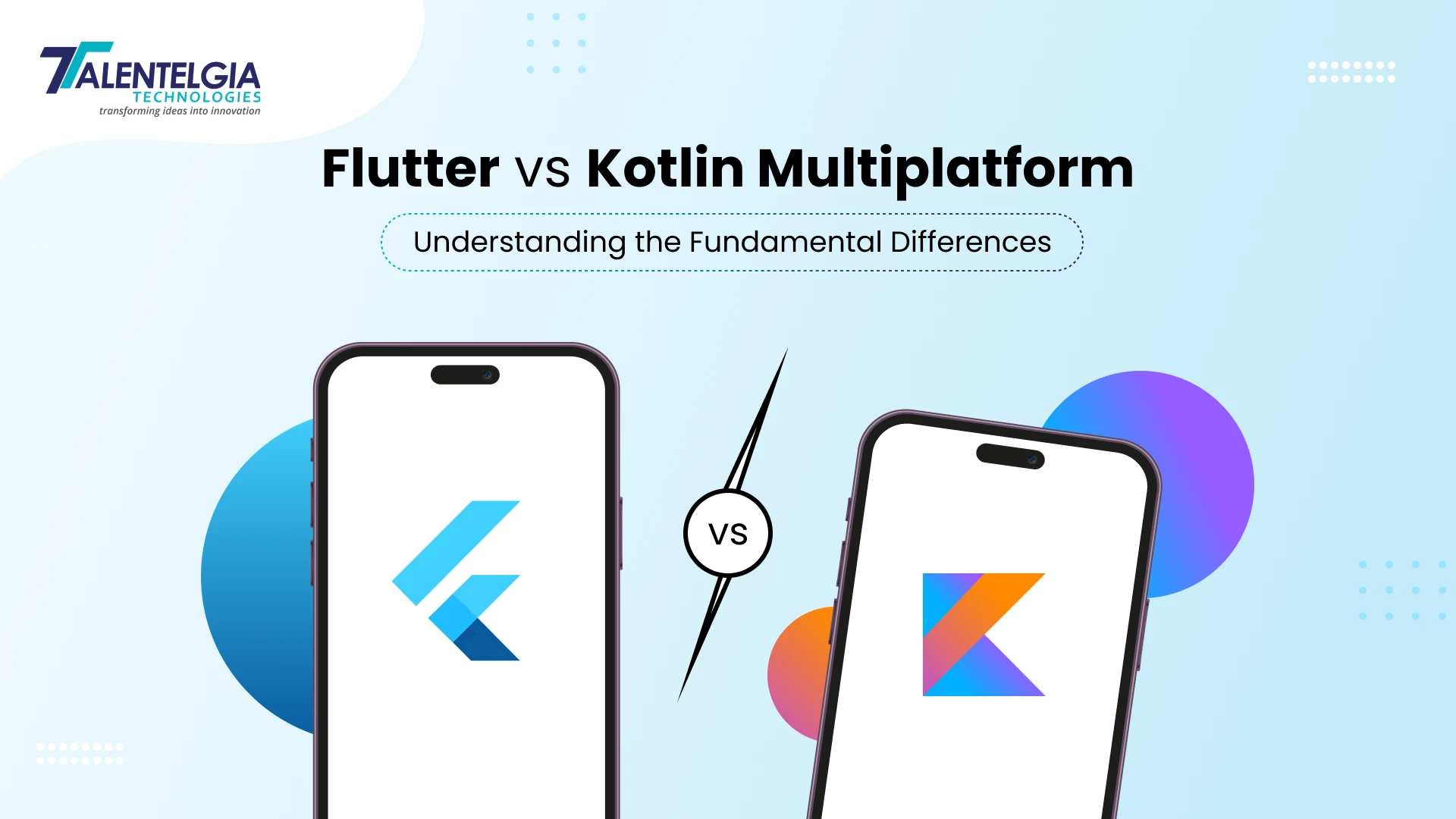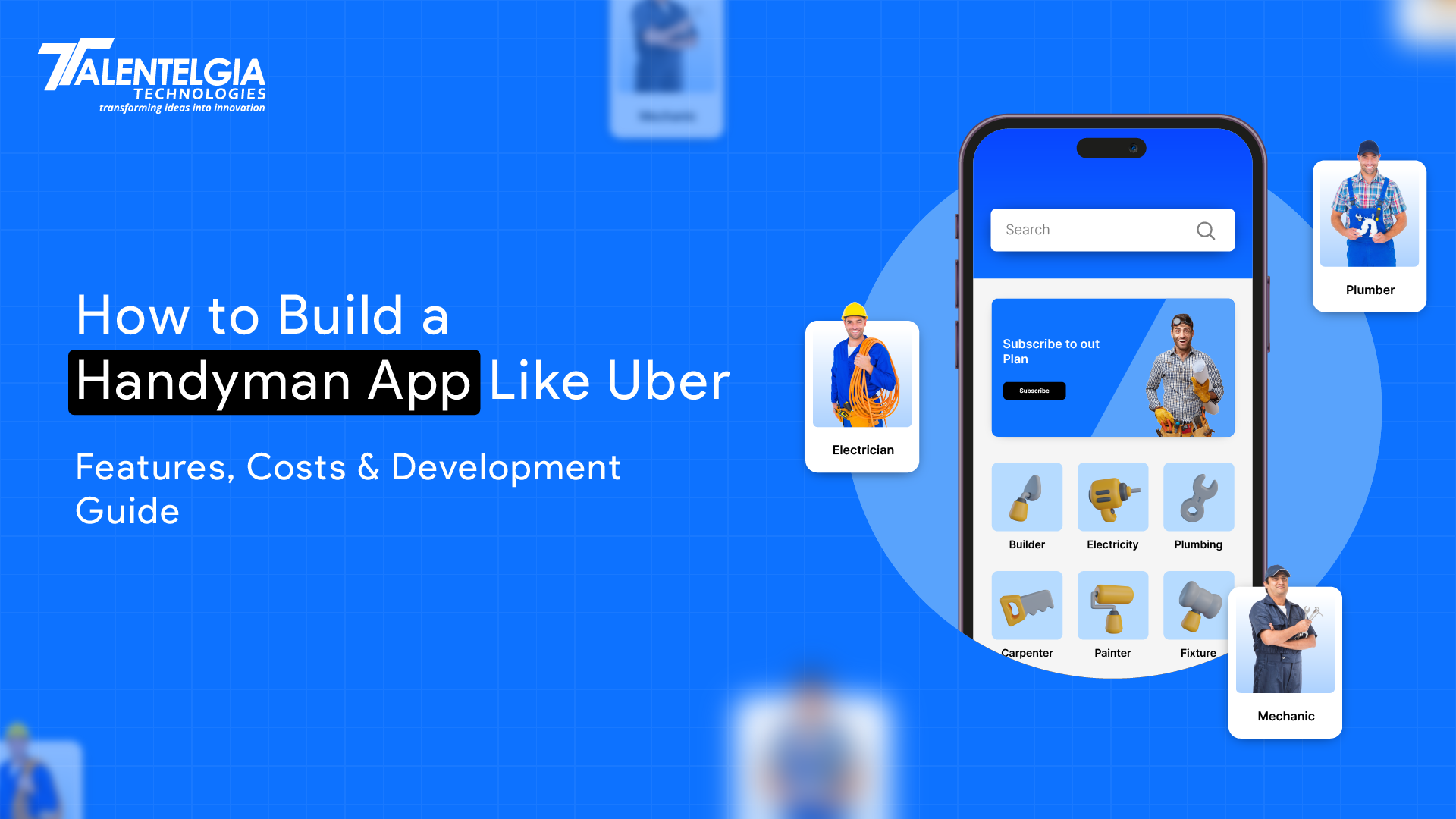Over the last few years, the hiring and recruitment market has experienced some dramatic changes. Thanks to technology, companies do not put job openings in newspapers or on paper flyers anymore. Now the company just uses online tools like job search apps or websites to get potential candidates. On the applicant’s side, the race to visit different companies to hand over a CV has now become a thing of the past.
Job search has become even more common and has changed the process of how people search for jobs. These recruiting apps offer tools for job seekers to create resumes, find jobs, connect with employers, and follow up on opportunities, making it more efficient and convenient. According to Research and Markets’ statistics, the global online recruitment market was valued at $2.91 billion in 2021, which is projected to grow to $3.64 billion by the year 2026, with a CAGR of 4.5%. With these online recruitment platforms growing this fast, there is no doubt that it is a great time for job portal development, developing a recruitment platform, and starting to earn.
Understanding the Job Portal Landscape: Types, Features & Cost
Are you an entrepreneur who has an amazing concept for a job portal app that can connect job seekers with employers, and you want to know the job portal app development cost? Then you’re on the right page. Currently, more and more people are looking to build job portal apps. These apps enhance the hiring experience and empower users to get the job they want with the click of a button.
Well-designed job portals that integrate AI in Recruitment allow users to perform multiple tasks seamlessly — like job alerts, resume uploads, interview scheduling, candidate matching, and skill-based recommendations. For this reason, businesses are investing more in such apps. Let’s explore the complete process, features, costs, and factors influencing development in this comprehensive guide.
What Is a Job Portal?
A job portal is an online platform that connects employers and job seekers. It simplifies the hiring process by providing tools to post vacancies, manage resumes, communicate with candidates, and analyze recruitment data.
For Job Seekers: It transforms the hunt for the next big career move into a focused, organized, and even personalized journey
- Build profiles, upload resumes, and browse openings instantly
- Apply for jobs with one click
- Track application progress and get personalized recommendations
For Employers: It’s a dynamic space to showcase openings, filter through pools of talent, and manage hiring workflows – all from single dashboard
- Post job openings and access a pool of potential candidates
- Utilize filters, resume parsing, and analytics for efficient hiring
- Simplify interview scheduling and candidate management
What are The Types of Job Portals?
The job portal ecosystem is as diverse as the workforce it serves. What started as digital classified ads has blossomed into a suite of specialized recruitment platforms, each designed to address unique needs within the world of hiring.
In today’s evolving recruitment landscape, it’s worth exploring How AI is Transforming Job Descriptions?
Let’s take a tour through the main categories—and how they help employers and job seekers connect in powerful, distinct ways.
- General Job Portals: These are large-scale, multipurpose platforms serving a diverse set of industries and roles. Examples include Indeed, Monster, and Glassdoor.
- Niche Job Portals: Focused, specialized, and highly targeted, niche portals serve specific industries, professions, or candidate segments. Think Stack Overflow for programmers or Mediabistro for media professionals.
- Enterprise/Recruitment Agency Portals: Tailor-made for large organizations or agencies, these portals support internal hiring or client recruitment at scale.
- Freelance Platforms: Platforms like Upwork, Freelancer, and Foverr are designed for project-based work, connecting businesses with independent contractors.
5 Key Features That Influence the Cost of Job Portal Development
There is no sure shot true budget that can be determined for young entrepreneurs who want to enter the recruitment industry and develop a job portal app. They need to study teh market and the different variables that drive the cost of development of app. This cost varies based on features and functionalities that will be included. We have mentioned few key variables that influence the job portal development cost:
- Complexity & Features: AI systems, real-time chats, and analytics raise costs.
- Platform Choice: Developing for web, mobile, or cross-platform impacts the budget.
- Design Customization: Custom UI/UX is more expensive than templated layouts.
- Development Team Location: Rates vary—North America ($80–$150/hr), Eastern Europe ($40–$70/hr), Asia ($25–$50/hr).
- Tech Stack: Modern frameworks and cloud services affect expenses.
- Ongoing Maintenance: Updates, bug fixes, and scaling add continuous costs.
Estimated Cost Breakdown of Job Portal Development: Step-by-Step Process
Determining the cost of a job portal isn’t just about adding up numbers—it’s about understanding the real investment behind crafting a high-performance, feature-rich platform that stands out in a crowded digital landscape. Let’s break down each stage of the development journey, showing where your budget goes and why every step matters.
1. Market Research & Planning
Before any sketching or coding begins, a thoughtful market analysis is vital. This stage involves identifying your target users, scoping out competitors, gathering industry benchmarks, and defining your unique value proposition. The result? A precise project blueprint and feature roadmap that save time and money in later stages by getting the strategy right from the start.
| Cost Aspect | Description | Estimated Range (USD) |
| Industry and Competitor Analysis | In-depth study of trends, key competitors, and current market gaps to position the job portal effectively. | $500 – $1,500 |
| User Persona Development | Researching job seeker and employer behavior, expectations, and pain points to define target segments. | $400 – $1,000 |
| Feature Prioritization & Scoping | Determining core and advanced features to align with project goals and budget. | $500 – $1,000 |
| Technology Feasibility & Cost Estimation | Assessing suitable tech stacks, scalability options, and potential overheads. | $600 – $1,500 |
| Project Roadmap & Timeline | Drafting a clear development timeline with milestones and deliverables. | $400 – $1,000 |
| Total Estimated Cost for Phase | $2,000 – $5,000 |
2. UI/UX Design
Design is the handshake between your idea and its users. Investment in UI/UX shapes how visitors interact with your portal—from effortless job searches to frictionless applications. This phase includes wireframes, user journey mapping, interactive prototypes, and polished visual assets. An easy-on-the-eyes, intuitive design not only attracts more users but also boosts engagement and retention.
| Cost Aspect | Description | Estimated Range (USD) |
| Wireframing and Prototyping | Creating visual blueprints and interactive drafts to validate user navigation and flow. | $1,000 – $3,000 |
| Visual Design & Branding | Incorporating brand identity through colors, typography, and iconography for strong recognizability. | $1,500 – $4,000 |
| User Experience Research | Testing layouts and navigation to ensure ease of use and intuitive functionality. | $1,000 – $2,000 |
| Responsive Layouts | Ensuring seamless design performance across desktop and mobile platforms. | $500 – $1,500 |
| Accessibility Compliance Design | Meeting ADA and WCAG standards for inclusive usability. | $500 – $1,500 |
| Total Estimated Cost for Phase | $3,000 – $10,000 |
3. Front End Development
Front-end brings your vision to life. Here, designers and developers team up to build responsive layouts, dynamic interfaces, and interactive elements that work smoothly on web and mobile. The more platforms you target (desktop, mobile web, apps), the higher the cost—but also the broader the reach.
| Cost Aspect | Description | Estimated Range (USD) |
| Interface Implementation | Converting design prototypes into functional front-end code using React.js, Angular, or Vue.js. | $3,000 – $7,000 |
| Responsive & Mobile-First Design | Structuring the codebase to perform optimally on various screens and devices. | $2,000 – $5,000 |
| UI Animation & Interactivity | Adding micro-interactions, hover states, and animation for a dynamic user interface. | $1,000 – $3,000 |
| Cross-Browser Compatibility | Testing and optimizing visuals and code responsiveness across browsers. | $1,000 – $2,000 |
| Integration with APIs | Connecting the user interface to backend endpoints and data flows. | $1,000 – $3,000 |
| Total Estimated Cost for Phase | $8,000 – $20,000 |
4. Back-End Development
Behind every smooth user experience is a robust backbone. Back-end work means building secure databases, user authentication, job posting systems, and search functionalities. This phase ensures data privacy, quick search results, real-time notifications, and seamless handling of large candidate volumes. More advanced back-ends may integrate AI, analytics, and automation—adding to both cost and long-term power.
| Cost Aspect | Description | Estimated Range (USD) |
| Database Architecture & Setup | Structuring data flow, setting up PostgreSQL or MongoDB with efficient indexing and security. | $3,000 – $7,000 |
| Server-Side Logic Development | Implementing APIs, server routes, authentication modules, and data management workflows. | $5,000 – $12,000 |
| User Authentication & Authorization | Building secure login systems, two-factor authentication, and role-based access control. | $1,000 – $3,000 |
| Scalability & Performance Optimization | Ensuring portals can handle large data loads and heavy traffic smoothly. | $1,000 – $3,000 |
| Integration with Cloud Services | Setting up AWS, Azure, or GCP environments for hosting and scalability. | $1,000 – $5,000 |
| Total Estimated Cost for Phase | $10,000 – $30,000 |
Also Read: Technologies to Develop Mobile Apps
5. API & Feature Integration
Modern job portals thrive on integration. Connecting with payment gateways, third-party verification tools, communication plugins (like chat or video calls), and location services all happens here. Investing wisely in reliable, future-ready APIs means your platform can scale, innovate, and remain bug-free.
| Cost Aspect | Description | Estimated Range (USD) |
| Payment Gateway Integration | Adding secure payment methods such as Stripe, PayPal, or Razorpay for premium listings. | $1,000 – $4,000 |
| Chat & Video Interview Integration | Embedding live chat and video conferencing through Twilio or WebRTC. | $1,500 – $4,000 |
| AI Job Matching Tools | Machine learning-based matching algorithms for candidate-job recommendations. | $1,500 – $4,000 |
| Email & Notification Systems | Automated alerts, confirmations, and recruitment tracking via SendGrid or Firebase. | $500 – $2,000 |
| Analytics Tracking Tools | Integrating Google Analytics or Mixpanel for user insight and engagement tracking. | $500 – $1,000 |
| Total Estimated Cost for Phase | $5,000 – $15,000 |
Also Read : How Recruiters use AI Tools in Candidate Shortlisting
6. Testing & Quality Assurance
Ironing out every wrinkle before launch is key. This budget covers functional, performance, usability, and security tests across every device and browser combination you can imagine. Comprehensive QA reduces bugs, boosts user ratings, and ensures legal compliance for data protection—a non-negotiable in recruitment tech.
| Cost Aspect | Description | Estimated Range (USD) |
| Functional Testing | Checking all features for logical consistency, accuracy, and stability. | $1,000 – $2,000 |
| Performance Testing | Stress testing the app under heavy load and traffic conditions. | $800 – $1,800 |
| Security Testing | Conducting vulnerability scans, data encryption checks, and penetration tests. | $800 – $1,500 |
| Usability Testing | Reviewing overall user flow, accessibility, and convenience. | $800 – $1,200 |
| Regression & Compatibility Tests | Ensuring updates don’t break existing functionalities across devices. | $500 – $1,500 |
| Total Estimated Cost for Phase | $2,000 – $7,000 |
7. Deployment & Hosting
After building and testing, you need to deploy your portal on secure and scalable hosting. This covers initial server setup, app store submissions (if you launch mobile apps), SSL certification, and basic security hardening. Remember, faster load times and reliable uptime mean satisfied users and better search engine rankings.
| Cost Aspect | Description | Estimated Range (USD) |
| Server Setup & Configuration | Initializing hosting environment and configuring HTTP servers or CDNs. | $400 – $1,200 |
| Domain Registration & SSL Certificates | Securing domain name and HTTPS encryption. | $200 – $500 |
| App Store/Platform Deployment | Publishing to Google Play, Apple App Store, and web hosting. | $300 – $800 |
| Hosting & Cloud Subscription | Monthly cost of cloud services like AWS or Azure for bandwidth and storage. | $100 – $500 |
| Maintenance Tools Integration | Implementing error tracking and uptime monitoring systems. | $200 – $500 |
| Total Estimated Cost for Phase | $1,000 – $3,000 |
8. Maintenance (Annual): $3,000 – $10,000 per year
Development doesn’t end at launch. Maintenance keeps your portal fresh, secure, and compatible with new devices, browsers, and regulatory changes. Typical costs include ongoing technical support, server monitoring, regular updates, feature improvements, and urgent bug fixes. This proactive investment preserves your portal’s value and keeps users satisfied in the long term.
| Cost Aspect | Description | Estimated Range (USD) |
| Bug Fixes & Patches | Identifying and resolving live bugs post-launch for smooth operation. | $1,000 – $2,000 |
| Performance Enhancements | Optimizing site or app speed, scalability, and response times. | $800 – $2,000 |
| Feature Improvements | Adding small feature upgrades based on user feedback and analytics. | $700 – $2,000 |
| Security & Compliance Updates | Staying updated with security patches and new legal standards. | $500 – $1,500 |
| Customer Support & Monitoring | Managing user inquiries, complaints, and support tickets round-the-clock. | $500 – $1,500 |
| Total Estimated Annual Cost | $3,000 – $10,000/year |
Conclusion
Building a job portal isn’t just about cost—it’s about crafting a digital bridge between opportunity and talent. Whether you’re launching a niche tech-hiring board or a large-scale global platform, success relies on user experience, performance, and innovation.
If you’re stepping into job portal app development for the first time, consider collaborating with an experienced tech partner who understands recruitment dynamics and modern architecture. A skilled team as well as a good mobile app development company can transform your vision into a reliable, scalable platform that truly empowers connections in the digital workplace.
Thinking of creating your job portal? Reach out to our expert developers—we’ll help you design, develop, and launch a hiring platform that not only meets market demands but exceeds expectations.


 Healthcare App Development Services
Healthcare App Development Services
 Real Estate Web Development Services
Real Estate Web Development Services
 E-Commerce App Development Services
E-Commerce App Development Services E-Commerce Web Development Services
E-Commerce Web Development Services Blockchain E-commerce Development Company
Blockchain E-commerce Development Company
 Fintech App Development Services
Fintech App Development Services Fintech Web Development
Fintech Web Development Blockchain Fintech Development Company
Blockchain Fintech Development Company
 E-Learning App Development Services
E-Learning App Development Services
 Restaurant App Development Company
Restaurant App Development Company
 Mobile Game Development Company
Mobile Game Development Company
 Travel App Development Company
Travel App Development Company
 Automotive Web Design
Automotive Web Design
 AI Traffic Management System
AI Traffic Management System
 AI Inventory Management Software
AI Inventory Management Software
 AI Software Development
AI Software Development  AI Development Company
AI Development Company  AI App Development Services
AI App Development Services  ChatGPT integration services
ChatGPT integration services  AI Integration Services
AI Integration Services  Generative AI Development Services
Generative AI Development Services  Natural Language Processing Company
Natural Language Processing Company Machine Learning Development
Machine Learning Development  Machine learning consulting services
Machine learning consulting services  Blockchain Development
Blockchain Development  Blockchain Software Development
Blockchain Software Development  Smart Contract Development Company
Smart Contract Development Company  NFT Marketplace Development Services
NFT Marketplace Development Services  Asset Tokenization Company
Asset Tokenization Company DeFi Wallet Development Company
DeFi Wallet Development Company Mobile App Development
Mobile App Development  IOS App Development
IOS App Development  Android App Development
Android App Development  Cross-Platform App Development
Cross-Platform App Development  Augmented Reality (AR) App Development
Augmented Reality (AR) App Development  Virtual Reality (VR) App Development
Virtual Reality (VR) App Development  Web App Development
Web App Development  SaaS App Development
SaaS App Development Flutter
Flutter  React Native
React Native  Swift (IOS)
Swift (IOS)  Kotlin (Android)
Kotlin (Android)  Mean Stack Development
Mean Stack Development  AngularJS Development
AngularJS Development  MongoDB Development
MongoDB Development  Nodejs Development
Nodejs Development  Database Development
Database Development Ruby on Rails Development
Ruby on Rails Development Expressjs Development
Expressjs Development  Full Stack Development
Full Stack Development  Web Development Services
Web Development Services  Laravel Development
Laravel Development  LAMP Development
LAMP Development  Custom PHP Development
Custom PHP Development  .Net Development
.Net Development  User Experience Design Services
User Experience Design Services  User Interface Design Services
User Interface Design Services  Automated Testing
Automated Testing  Manual Testing
Manual Testing  Digital Marketing Services
Digital Marketing Services 
 Ride-Sharing And Taxi Services
Ride-Sharing And Taxi Services Food Delivery Services
Food Delivery Services Grocery Delivery Services
Grocery Delivery Services Transportation And Logistics
Transportation And Logistics Car Wash App
Car Wash App Home Services App
Home Services App ERP Development Services
ERP Development Services CMS Development Services
CMS Development Services LMS Development
LMS Development CRM Development
CRM Development DevOps Development Services
DevOps Development Services AI Business Solutions
AI Business Solutions AI Cloud Solutions
AI Cloud Solutions AI Chatbot Development
AI Chatbot Development API Development
API Development Blockchain Product Development
Blockchain Product Development Cryptocurrency Wallet Development
Cryptocurrency Wallet Development About Talentelgia
About Talentelgia  Our Team
Our Team  Our Culture
Our Culture 
 Healthcare App Development Services
Healthcare App Development Services Real Estate Web Development Services
Real Estate Web Development Services E-Commerce App Development Services
E-Commerce App Development Services E-Commerce Web Development Services
E-Commerce Web Development Services Blockchain E-commerce
Development Company
Blockchain E-commerce
Development Company Fintech App Development Services
Fintech App Development Services Finance Web Development
Finance Web Development Blockchain Fintech
Development Company
Blockchain Fintech
Development Company E-Learning App Development Services
E-Learning App Development Services Restaurant App Development Company
Restaurant App Development Company Mobile Game Development Company
Mobile Game Development Company Travel App Development Company
Travel App Development Company Automotive Web Design
Automotive Web Design AI Traffic Management System
AI Traffic Management System AI Inventory Management Software
AI Inventory Management Software AI Software Development
AI Software Development AI Development Company
AI Development Company ChatGPT integration services
ChatGPT integration services AI Integration Services
AI Integration Services Machine Learning Development
Machine Learning Development Machine learning consulting services
Machine learning consulting services Blockchain Development
Blockchain Development Blockchain Software Development
Blockchain Software Development Smart contract development company
Smart contract development company NFT marketplace development services
NFT marketplace development services IOS App Development
IOS App Development Android App Development
Android App Development Cross-Platform App Development
Cross-Platform App Development Augmented Reality (AR) App
Development
Augmented Reality (AR) App
Development Virtual Reality (VR) App Development
Virtual Reality (VR) App Development Web App Development
Web App Development Flutter
Flutter React
Native
React
Native Swift
(IOS)
Swift
(IOS) Kotlin (Android)
Kotlin (Android) MEAN Stack Development
MEAN Stack Development AngularJS Development
AngularJS Development MongoDB Development
MongoDB Development Nodejs Development
Nodejs Development Database development services
Database development services Ruby on Rails Development services
Ruby on Rails Development services Expressjs Development
Expressjs Development Full Stack Development
Full Stack Development Web Development Services
Web Development Services Laravel Development
Laravel Development LAMP
Development
LAMP
Development Custom PHP Development
Custom PHP Development User Experience Design Services
User Experience Design Services User Interface Design Services
User Interface Design Services Automated Testing
Automated Testing Manual
Testing
Manual
Testing About Talentelgia
About Talentelgia Our Team
Our Team Our Culture
Our Culture

















 Write us on:
Write us on:  Business queries:
Business queries:  HR:
HR: 





